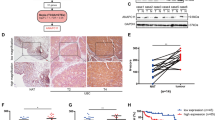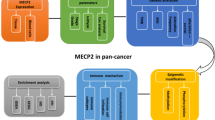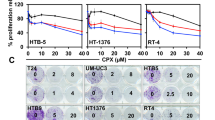Abstract
Modified citrus pectin (MCP) is a carbohydrate enriched complex, which has been implicated in cancer treatment and prevention. However, the effects of MCP on urinary bladder cancer (UBC) are unknown. In this study, MCP was first tested in T24 and J82 human UBC cells and showed the inhibition of cell viability by the sulforhodamine B (SRB) assay. The MCP-treated UBC cells exhibited G2/M phase arrest with the decrease of Cyclin B1 and phosphorylated Cdc2. Caspase-3 was also activated, leading to the cleavage of Caspase-3 and PARP. We further explored the possible molecular mechanisms upon MCP treatment in UBC cells. Reduction of galectin-3 was observed and followed with the inactivation of Akt signaling pathway. Of note, galectin-3 knockdown by RNA interference recapitulated the MCP-mediated anti-proliferation, cell cycle arrest and apoptosis. Moreover, oral administration of MCP to the T24 xenograft-bearing nude mice inhibited the tumor growth significantly (P < 0.05). Quantification analysis of immunohistochemistry staining for Ki67 and cleaved Caspase-3 confirmed the decrease of proliferation index (P < 0.05) and the increase of apoptosis index (P < 0.01) in 700 mg/kg MCP-fed UBC xenografts. Using the information from TCGA database, we revealed that the overexpression of galectin-3 was associated with high tumor grade with lymph node metastasis, poor overall survival in UBC patients. Considering the remarkable inhibitory effects of MCP on UBC cell proliferation and survival in vitro and in vivo mainly through galectin-3, which is upregulated in UBCs, MCP may become an attractive agent, as a natural dietary fiber, for prevention and therapy of UBCs.
Similar content being viewed by others
Login or create a free account to read this content
Gain free access to this article, as well as selected content from this journal and more on nature.com
or
References
Torre LA, Bray F, Siegel RL, Ferlay J, Lortet-Tieulent J, Jemal A. Global cancer statistics, 2012. Cancer J Clin. 2015;65:87–108.
Siegel RL, Miller KD, Jemal A. Cancer statistics, 2017. Cancer J Clin. 2017;67:7–30.
Vaidya A, Soloway MS, Hawke C, Tiguert R, Civantos F. De novo muscle invasive bladder cancer: is there a change in trend? J Urol. 2001;165:47–50.
Yeung C, Dinh T, Lee J. The health economics of bladder cancer: an updated review of the published literature. Pharmacoeconomics. 2014;32:1093–104.
Glinsky VV, Raz A. Modified citrus pectin anti-metastatic properties: one bullet, multiple targets. Carbohydr Res. 2009;344:1788–91.
Vayssade M, Sengkhamparn N, Verhoef R, Delaigue C, Goundiam O, Vigneron P, et al. Antiproliferative and proapoptotic actions of okra pectin on B16F10 melanoma cells. Phytother Res. 2010;24:982–9.
Jackson CL, Dreaden TM, Theobald LK, Tran NM, Beal TL, Eid M, et al. Pectin induces apoptosis in human prostate cancer cells: correlation of apoptotic function with pectin structure. Glycobiology. 2007;17:805–19.
Yan J, Katz A. PectaSol-C modifiedcitrus pectin induces apoptosis and inhibition of proliferation in humanand mouse androgen-dependent and- independent prostate cancer cells.Integr. Cancer Ther. 2010;9:197–203.
Gunning AP, Bongaerts RJ, Morris VJ. Recognition ofgalactan components of pectin by galectin-3. FASEB J. 2009;23:415–24.
Ahmed H, AlSadek DM. Galectin-3 as a potential target to prevent cancer metastasis. Clin Med Insights Oncol. 2015;9:113–21.
Gao X, Liu J, Liu X, Li L, Zheng J. Cleavage and phosphorylation: important post-translational modifications of galectin-3. Cancer Metastas. Rev. 2017;36:367–74.
Thijssen VL, Heusschen R, Caers J, Griffioen AW. Galectin expression in cancer diagnosis and prognosis: a systematic review. Biochim Biophys Acta. 2015;1855:235–47.
Ruvolo PP. Galectin 3 as a guardian of the tumor microenvironment. Biochim Biophys Acta. 2016;1863:427–37.
Zeinali M, Adelinik A, Papian S, Khorramdelazad H, Abedinzadeh M. Role of galectin-3 in the pathogenesis of bladder transitional cell carcinoma. Hum Immunol. 2015;76:770–4.
Canesin G, Gonzalez-Peramato P, Palou J, Urrutia M, Cordón-Cardo C, Sánchez-Carbayo M. Galectin-3 expression is associated with bladder cancer progression and clinical outcome. Tumour Biol. 2010;31:277–85.
Weinstein JN, Akbani R, Broom BM, Wang W, Verhaak RG, McConkey D, et al. Comprehensive molecular characterization of urothelial bladder carcinoma. Nature. 2014;507:315–22.
Abu-Elsaad NM, Elkashef WF. Modified citrus pectin stops progression of liver fibrosis by inhibiting galectin-3 and inducing apoptosis of stellate cells. Can J Physiol Pharmacol. 2016;94:554–62.
Zhang T, Zheng Y, Zhao D, Yan J, Sun C, Zhou Y, et al. Multiple approaches to assess pectin binding to galectin-3. Int J Biol Macromol. 2016;91:994–1001.
Nangia-Makker P, Conklin J, Hogan V, Raz A. Carbohydrate-binding proteins in cancer, and their ligands as therapeutic agents. Trends Mol Med. 2002;8:187–92.
Mori Y, et al. Binding of galectin-3, a β-Galactoside-binding lectin, to MUC1 protein enhances phosphorylation of extracellular signal-regulated kinase ½ (ERK1/2) and akt, promoting tumor cell malignancy. J Biol Chem. 2015;290:26125–40.
Leclere L, Cutsem PV, Michiels C. Anti-cancer activities of pH- or heat-modified pectin. Front Pharmacol. 2013;4:128.
Delphi L, Sepehri H, Khorramizadeh MR, Mansoori F. Pectic-oligoshaccharides from apples induce apoptosis and cell cycle arrest in MDA-MB-231 cells, a model of human breast cancer. Asian Pac J Cancer Prev. 2015;16:5265–71.
Delphi L, Sepehri H. Apple pectin: a natural source for cancer suppression in 4T1 breast cancer cells in vitro and express p53 in mouse bearing 4T1 cancer tumors, in vivo. Biomed Pharmacother. 2016;84:637–44.
Maxwell EG, Colquhoun IJ, Chau HK, Hotchkiss AT, Waldron KW, Morris VJ, et al. Modified sugar beet pectin induces apoptosis of colon cancer cells via an interaction with the neutral sugar side-chains. Carbohydr. Polym.. 2016;136:923–9.
Lin L, et al. Structural elucidation of a pectin from flowers of Lonicera japonica and its antipancreatic cancer activity. Int J Biol Macromol. 2016;88:130–7.
Hsieh TC, Wu JM. Changes in cell growth, cyclin/kinase, endogenous phosphoproteins and nm23 gene expression in human prostatic JCA-1 cells treated with modified citrus pectin. Biochem Mol Biol Int. 1995;37:833–41.
Liu HY, Huang ZL, Yang GH, Lu WQ, Yu NR. Inhibitory effect of modified citrus pectin on liver metastases in a mouse colon cancer model. World J Gastroenterol. 2008;14:7386–91.
Nangia-Makker P, Hogan V, Honjo Y, Baccarini S, Tait L, Bresalier R, et al. Inhibition of human cancer cell growth and metastasis in nude mice by oral intake of modified citrus pectin. J Natl Cancer Inst. 2002;94:1854–62.
Wang Y, Nangia-Makker P, Balan V, Hogan V, Raz A. Calpain activation through galectin-3 inhibition sensitizes prostate cancer cells to cisplatin treatment. Cell Death Dis. 2010;1:e101.
Hossein G, Keshavarz M, Ahmadi S, Naderi N. Synergistic effects of PectaSol-C modified citrus pectin an inhibitor of Galectin-3 and paclitaxel on apoptosis of human SKOV-3 ovarian cancer cells. Asian Pac J Cancer Prev. 2013;14:7561–8.
Johnson KD, Glinskii OV, Mossine VV, Turk JR, Mawhinney TP, Anthony DC, et al. Galectin-3 as a potential therapeutic target in tumors arising from malignant endothelia. Neoplasia. 2007;9:662–70.
Ramachandran C, Wilk BJ, Hotchkiss A, Chau H, Eliaz I, Melnick SJ. Activation of human T-helper/inducer cell, T-cytotoxic cell, B-cell, and natural killer (NK)-cells and induction of natural killer cell activity against K562 chronic myeloid leukemia cells with modified citrus pectin. BMC Complement Altern Med. 2011;11:59.
Kolatsi-Joannou M, Price KL, Winyard PJ, Long DA. Modified citrus pectin reduces galectin-3 expression and disease severity in experimental acute kidney injury. PLoS One. 2011;6:e18683.
Menachem A, Bodner O, Pastor J, Raz A, Kloog Y. Inhibition of malignant thyroid carcinoma cell proliferation by Ras and galectin-3 inhibitors. Cell Death Discov. 2015;1:15047.
Cardoso AC, Andrade LN, Bustos SO, Chammas R. Galectin-3 determines tumor cell adaptive strategies in stressed tumor microenvironments. Front Oncol. 2016;6:127.
Wang L, Guo XL. Molecular regulation of galectin-3 expression and therapeutic implication in cancer progression. Biomed Pharmacother. 2016;78:165–71.
Oka N, Nakahara S, Takenaka Y, Fukumori T, Hogan V, Kanayama HO, et al. Galectin-3 inhibits tumor necrosis factor-related apoptosis-inducing ligand-induced apoptosis by activating Akt in human bladder carcinoma cells. Cancer Res. 2005;65:7546–53.
Acknowledgements
This work was supported by the National Natural Science Foundation of China (81372168 to J. Y.), the Natural Science Foundation for Universities in Jiangsu Province (BK20151396 to J. Y.), One Hundred Talent Program of Chinese Academy of Sciences (to R. H.), and the Research Fund of Institutes for Drug Discovery and Development, Chinese Academy of Sciences (CASIMM0120164001 to R. H.). We thank the Institutional Technology Service Center of Shanghai Institute of Materia Medica for technical support.
Author information
Authors and Affiliations
Contributions
J. Y., and R. H. designed research; T. F., D. L., H. N., D. L., J. S., X. H., and Y. D. performed research and analyzed data; T. F., D. L., H. N., J. Y., and R. H. wrote the paper; and M. G., S. Y., J. Y., and R. H. provided supervision.
Corresponding authors
Ethics declarations
Competing interests
The authors declare no competing interests.
Rights and permissions
About this article
Cite this article
Fang, T., Liu, Dd., Ning, Hm. et al. Modified citrus pectin inhibited bladder tumor growth through downregulation of galectin-3. Acta Pharmacol Sin 39, 1885–1893 (2018). https://doi.org/10.1038/s41401-018-0004-z
Received:
Revised:
Accepted:
Published:
Issue Date:
DOI: https://doi.org/10.1038/s41401-018-0004-z
Keywords
This article is cited by
-
Platelet glycoprotein VI promotes folic acid-induced acute kidney injury through interaction with tubular epithelial cell-derived galectin-3
Cell Communication and Signaling (2025)
-
Pectin: Health-promoting properties as a natural galectin-3 inhibitor
Glycoconjugate Journal (2024)
-
Galectins and galectin-mediated autophagy regulation: new insights into targeted cancer therapy
Biomarker Research (2023)
-
Modified citrus pectin inhibits breast cancer development in mice by targeting tumor-associated macrophage survival and polarization in hypoxic microenvironment
Acta Pharmacologica Sinica (2022)
-
Targeted disruption of galectin 3 in mice delays the first wave of spermatogenesis and increases germ cell apoptosis
Cellular and Molecular Life Sciences (2021)



